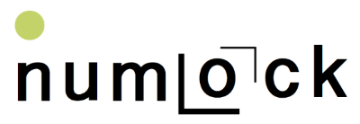Numlock News: July 2, 2018
 By Walt Hickey
By Walt Hickey
Before we get to the numbers, today I want to ask you to consider becoming a paid subscriber to Numlock News. For $5 per month, you get a new weekend edition, you’ll get access to a subscriber-only comment system and job board, and you will guarantee that Numlock News stays ad free.
There’s a discount to $50 when you buy a full annual subscription. I started this to highlight the fascinating numbers behind the news, not to sell mattresses. With a subscription you’ll help me ensure that Numlock exists for the reader, not some advertiser. I also think you’ll love the exclusive Sunday edition, where I talk to the journalists behind some of my favorite stories.
Subscribe before the end of the week and you won’t miss a single thing. For more information or to subscribe right away, go here. Thanks for considering it. And now, the numbers:
 Cheap Clothes
Cheap Clothes
I am on the H&M pants subscription, where I buy a pair of black H&M pants, wear them every day for about two months, rip the crotch open and then buy that same pair of black H&M pants and renew the process indefinitely. This apparently isn’t enough for the fast fashion retailer, as its quarterly earnings announcement was pretty bad: profits were down 21 percent, and while the company made $520 million from March to May, it’s currently got $4.3 billion worth of unsold inventory. Logically, H&M should make its pants last 45 days rather than 60 days, but that would ruin me financially.
What The Teens Are Buying These Days
The average player of the video game Fortnite spends $58.25 on the free video game. They’re paying for ways to personalize their character as they attempt to kill the other 99 players they have been dropped onto an island with. The cosmetic items are a big draw for consistent players: according to the survey, 30 percent of players never bought items, but those who did spent an average of $84.67. I would make fun of them for spending all that money, but Teen Walt was the proud owner of the Halo Legendary Edition helmet and I have absolutely no ground to stand on here.
Dollar Stores
The average consumer spends $29 at a dollar store every month, but that’s not always a sign of frugality. Patrons of dollar stores often pay more for items that would be available at a supermarket or a big-box store for bulk purchases. Still, dollar stores are on the march all over the United States, especially in areas far away from or too impoverished to support a supermarket.
 Nickels
Nickels
The U.S. Mint made over 1.3 billion nickels in 2017, and despite the fact that they literally print money, the Mint made all those coins at a loss. The penny has long been a money-loser for the mint, with each coin costing more than the cent its worth, but the nickel has only been a money loser since 2006. The copper and nickel in a five cent piece went up in price and is now about 7 cents, and in 2017 the Mint lost $9.5 million making them. And changing that composition isn’t easy — vending machines and coin counters in America uses conductivity to delineate different coins, and reprogramming would cost tens of billions of dollars.
Cement
The cement business is the second largest industrial emitter of carbon behind only the steel industry. This is an issue for countries trying to hit climate goals, as cement and concrete are also absolutely essential components for building a low-carbon economy. An average wind turbine needs 12,400 to 17,700 cubic feet of concrete made with cement, or conservatively about 57 trucks’ worth of concrete. But to make that cement, limestone had to be heated in an enormous kiln and that process belched out carbon by the ton.
 There Is A Company Behind Those Disposable E-Cigs Littering The Sidewalk
There Is A Company Behind Those Disposable E-Cigs Littering The Sidewalk
Juul is a San Francisco-based litter company that manufactures electronic cigarettes. It has a staggering 68 percent market share, and that’s rising. It’s currently got a $4 billion valuation, but a new fundraising round would put it at a $15 billion valuation. Perhaps sensing that being the preferred nicotine delivery mechanism for American teenagers is a profitable but legally perilous position, Juul is looking outward for growth internationally.
 Streams
Streams
An outside estimate of Spotify streams says Drake’s new album “Scorpion” smashed the one-day global album streaming record with 132,450,203 streams. Apple Music claims Drake also broke its streaming record with 170 million streams. Because this is the music business we’re talking about and especially because it’s the streaming music business we’re talking about, all numbers should be taken with a metric ton of salt.
At-Risk People
The Centers for Disease Control and Prevention estimate that there are more than 1 million people at a high risk of contracting HIV in the United States. One way to prevent HIV infection is the use of PrEP, a medication that is over 90 percent effective when taken daily. Brand-name Truvada has seen its average wholesale price increase by 45 percent since it was approved 6 years ago, and now has a list price of $2,000 for a 30-day supply. That price tag is one reason that “pill that stops an actual plague” is received by only 167,000 people.
Shefali Luthra and Anna Gorman, NPR
Thank you so much for subscribing! If you're enjoying the newsletter, forward it to someone you think may enjoy it too, and please consider becoming a paid subscriber.
Numlock News is made possible by readers like you who became full subscribers.
Send links to me on Twitter at @WaltHickey or email me with numbers, tips, or feedback at walt@numlock.news.

